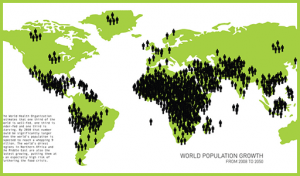 Students in this field of study will be affiliated with the Department of Global Health and Population at the Harvard T.H. Chan School of Public Health.
Students in this field of study will be affiliated with the Department of Global Health and Population at the Harvard T.H. Chan School of Public Health.
The Department of Global Health and Population seeks to improve global health through education, research, and service from a population-based perspective. As a diverse community of students, educators, researchers, and practitioners from around the world and with varied backgrounds, the department works together to produce powerful ideas that improve the lives and health of people across the globe.
What are the Areas of Specialization within this Field of Study?
Health Systems: this area offers prepares students for independent research on health system issues worldwide. Students receive an advanced level of interdisciplinary training in economics, political economy, organizational behavior, and evaluative science, along with a strong foundation of public health skills. Through coursework and applied research, students learn to integrate theories and methods from various disciplines and apply them to analyze critical health system issues.
Population and Family Health: this area will prepare students for independent research on population and family health issues worldwide. Training in quantitative and qualitative methods encompasses epidemiology, decision sciences, behavioral and experimental economics as well as health economics. Students will acquire a solid foundation in the essential demographic, epidemiologic, and statistical concepts and methods needed for the study of levels, trends, and differentials in population health and its determinants.
What research competencies and skills will students develop?
Health Systems
The Health Systems area of specialization recognizes that professionals in health systems must be capable of doing advanced research and evaluating the quality and approach of research performed by others. To achieve this, students are exposed to the frontier of knowledge about health systems, potential areas of new research, and methods appropriate for advancing knowledge and conducting significant research. In particular, students are required to take advanced courses in theories and methodologies in relevant social science, such as economics, political economy and organizational behavior.Students are trained to apply the knowledge that addresses major health system questions such as:
- How do changes in health system functions influence health system performance and achievement of goals?
- What financing approaches are appropriate for achieving goals shaped by different ethical values and under varied economic and social conditions?
- Which payment mechanisms are effective in controlling healthcare costs and improving quality of healthcare services?
- How can regulation make the private sector more responsive to societal needs?
- How do different organizational and governance structures of health care delivery systems affect quality and efficiency of health care services?
- How do political structures and processes affect opportunities for adoption and implementation of health system reforms?
Population and Family
The Population and Family Health area of specialization is designed to provide the foundation for work on population and family health around the world. The required coursework illustrates the way in which quantitative methods from demography, epidemiology, statistics, and other disciplines can be applied to new challenges in burden of disease assessments. Students will develop scientifically rigorous and important research questions and associated research plans with a focus on population and family health in low- and middle-income countries. Particular research areas may include reproductive maternal, child and adolescent health and nutrition, and both infectious diseases (e.g. HIV, TB, arbovirus and malaria) and non-communicable conditions (e.g. cardiovascular disease, cancer, and mental health).
Students will develop expertise in:
-
- Application of the appropriate analytic tools from different disciplines to translate data into evidence that is salient to identifying & understanding problems, setting priorities, planning & executing public health programs
- Typical data sources include population-based surveys, censuses, & administrative databases
- Analyzing population-based demographic & health data to investigate causal relationships important to population & family health
- Designing, implementing, & evaluating intervention studies, including randomized controlled trials, to assess the effectiveness & cost-effectiveness of public health interventions in low-and middle-income countries
- Analyzing patterns & trends in population health outcomes, including mortality & causes of death, fertility & functional health status
- Application of the appropriate analytic tools from different disciplines to translate data into evidence that is salient to identifying & understanding problems, setting priorities, planning & executing public health programs
Who are the faculty in the department associated with this Field of Study?
Information on the faculty in the Department of Global Health and Population.
What are the required courses in this Field of Study?
Required courses in the Global Health and Population Field of Study are listed in the GHP Department Guide.
Who is the departmental contact from whom more information about doctoral training in this Field of Study may be sought?
Barbara Heil, Global Health and Population, Assistant Director of Educational Programs, tel: 617-432-1179
Allison Conary, Global Health and Population, Senior Education Coordinator, tel: 617-432-2253
Click here for further information on the Department of Global Health and Population at the Harvard T.H. Chan School of Public Health.
Photo: Lauren Manning




You must be logged in to post a comment.